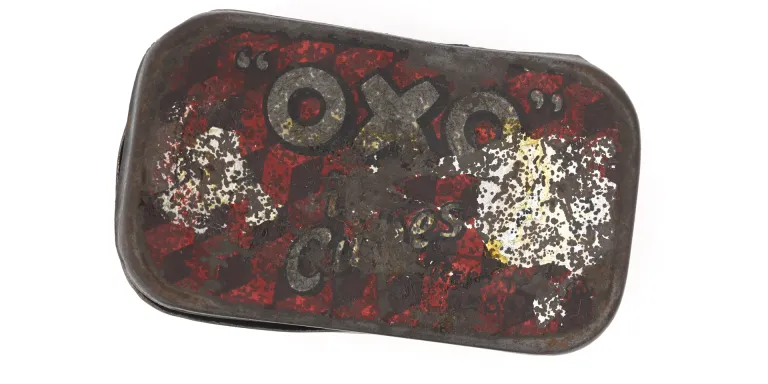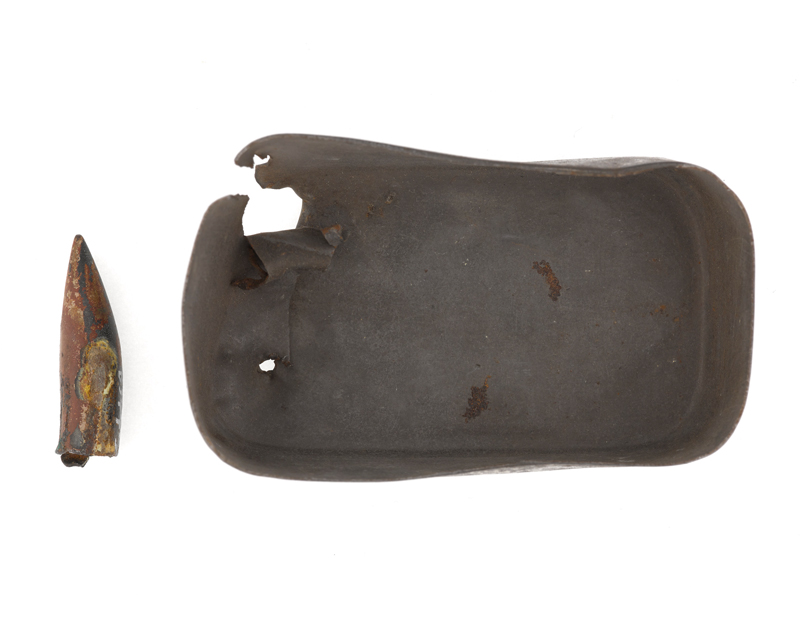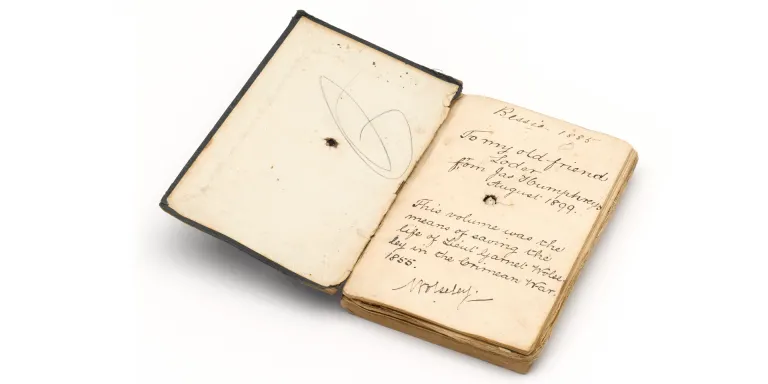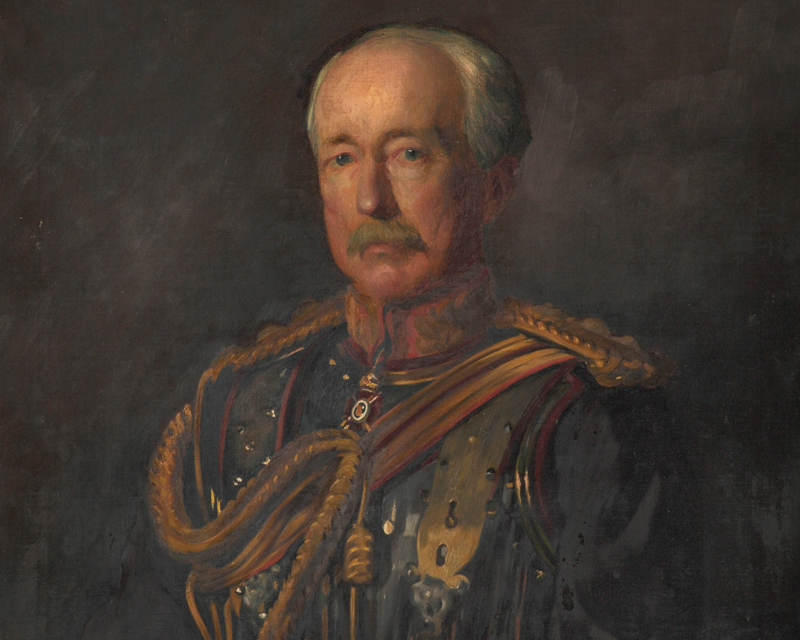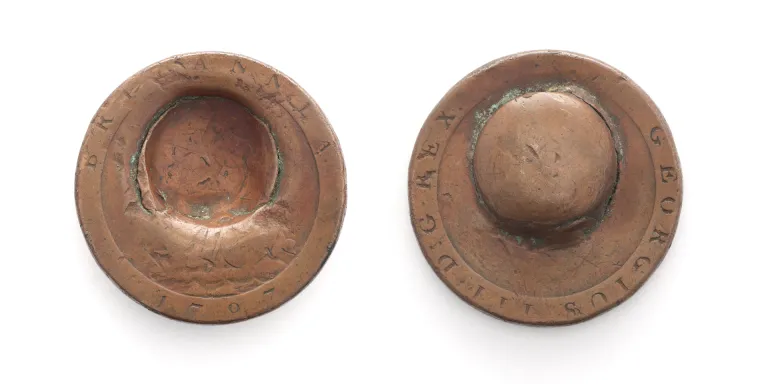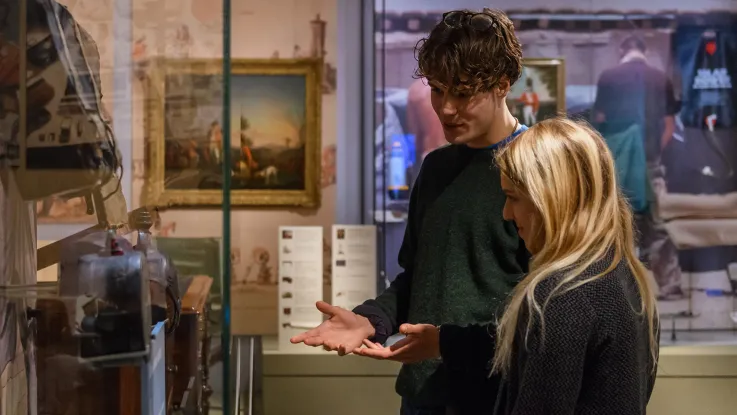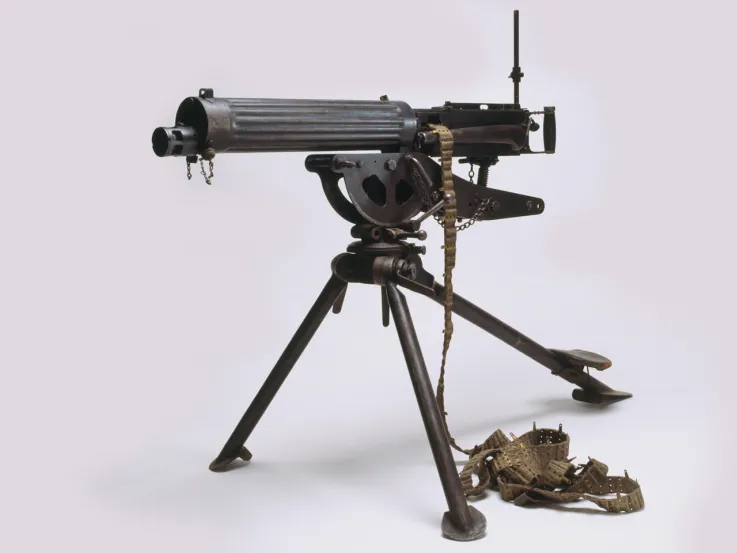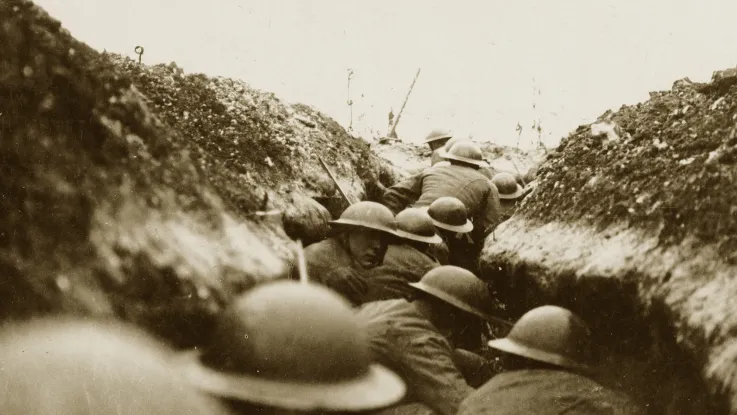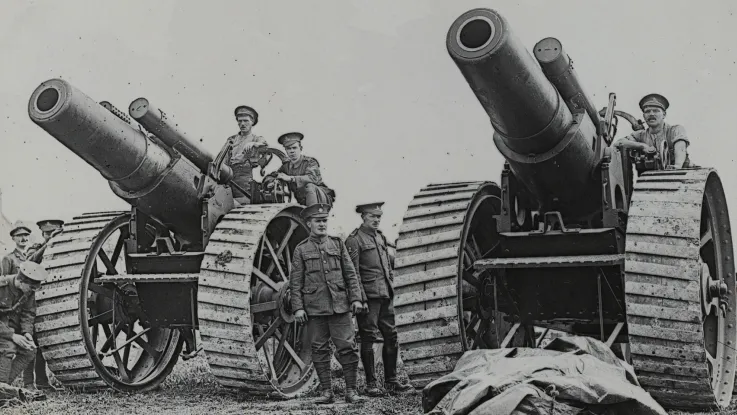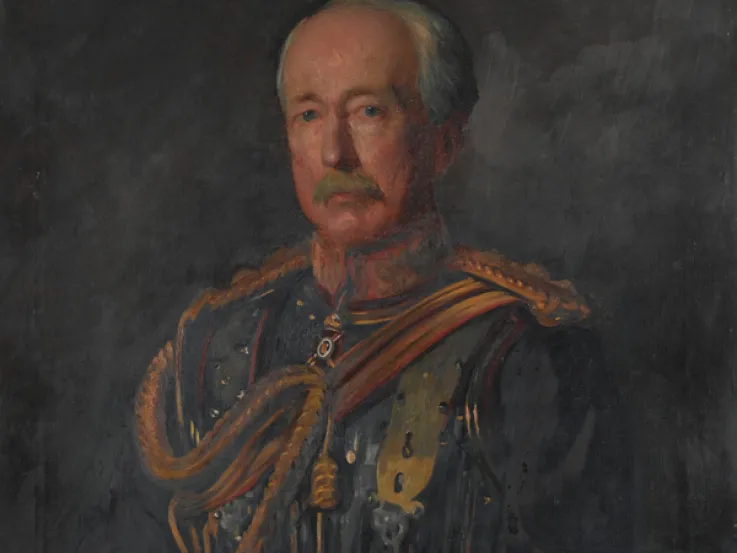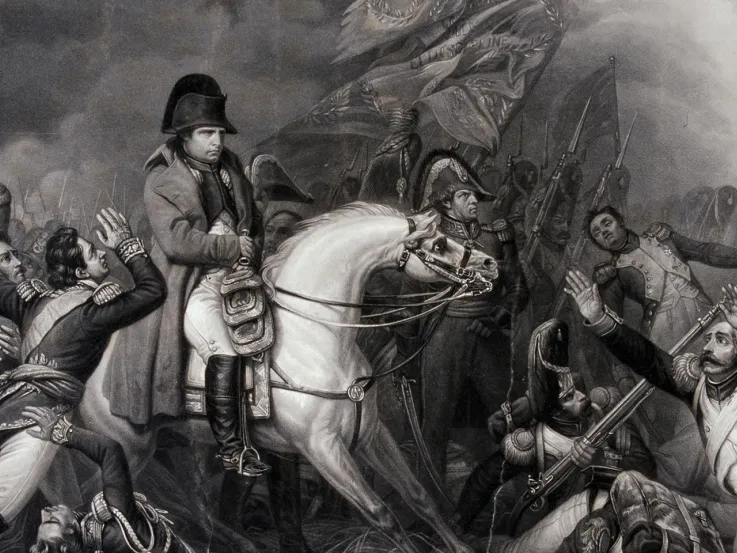Stephen Palmer’s Oxo tin, 1915
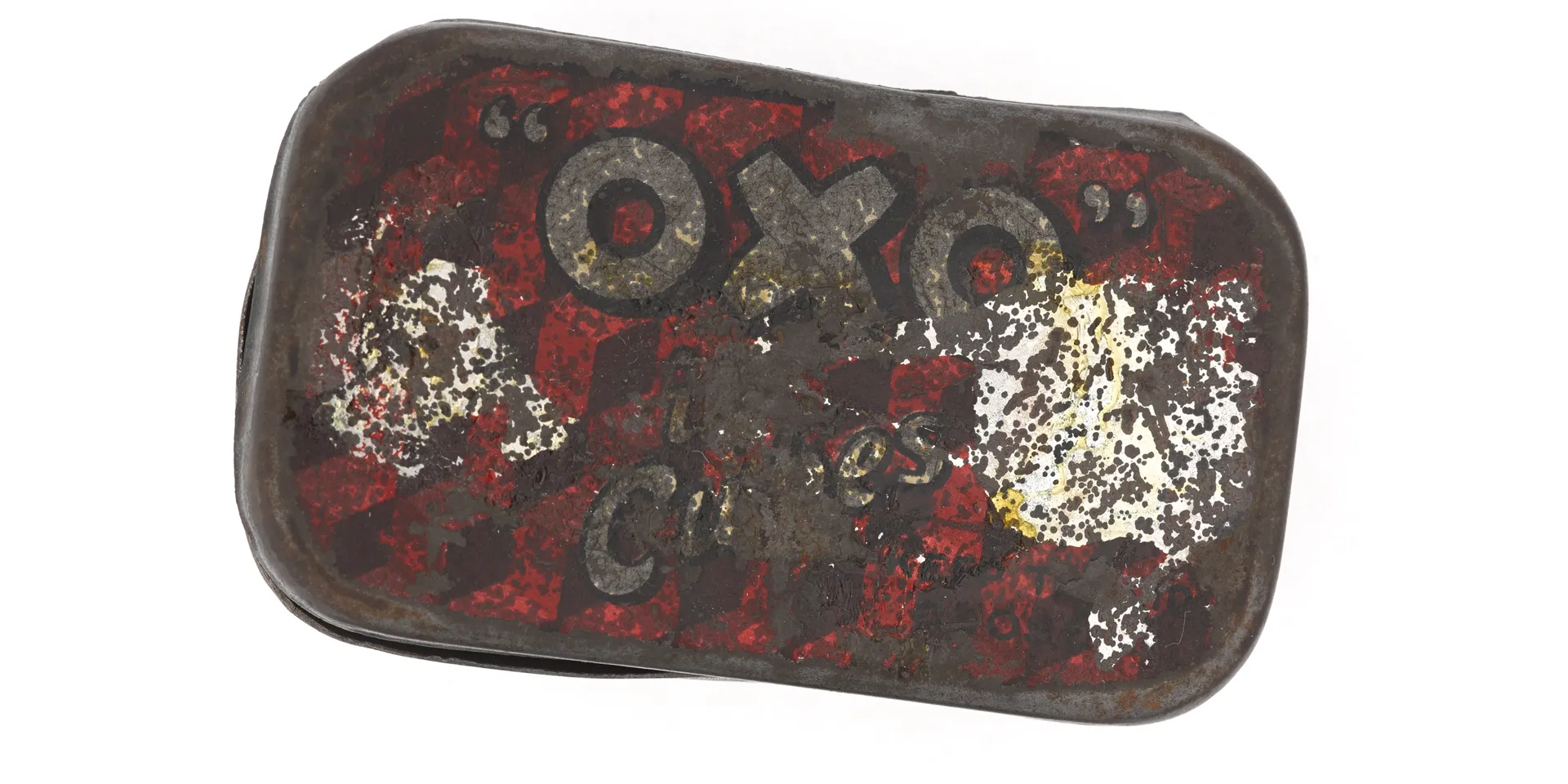
There’s nothing like Oxo
Private Stephen Palmer served with The Queen’s Royal West Surrey Regiment during the First World War. He had signed up in 1914, along with his three brothers, to take part in the fighting in France and Belgium.
One of Stephen's brothers sent him this tin of Oxo at some stage during 1915. Oxo featured in the ration kits given to soldiers fighting on the Western Front. It was also among the luxury items gratefully received from home, along with cigarettes and tea.
Oxo cubes could be dissolved in hot water to make a warming drink. And the tins could be re-used to keep letters and other prized possessions safe from the wet conditions in the trenches.
But Stephen had more reason than most soldiers to be thankful for his Oxo tin. He kept it in his breast pocket, where it ended up stopping a bullet and saving his life.
‘A bullet hit my breast pocket, went through my tobacco box into the Oxo tin. It tore my coat in twenty places, and I am only bruised.’
Private Stephen Palmer recounting his experience in 'The Dover Express' - 1915
The spent bullet and the tin that stopped it, 1915
Stephen kept both the tin and the spent bullet as souvenirs of his lucky escape. He sent them home to Dover, where they were put on display.
However, his brother George was not so lucky. He was killed in action on the Somme in August 1916.
The following year, Stephen's luck also ran out. He died fighting in the Ypres Salient on 16 July 1917. He has no known grave and is commemorated among the missing on the Menin Gate Memorial in Ypres.
A famous marketing poster from the First World War depicted a soldier writing home to ask his family to: ‘Be sure to send Oxo!’
French and English grammar book belonging to Lieutenant Garnet Joseph Wolseley, 1855
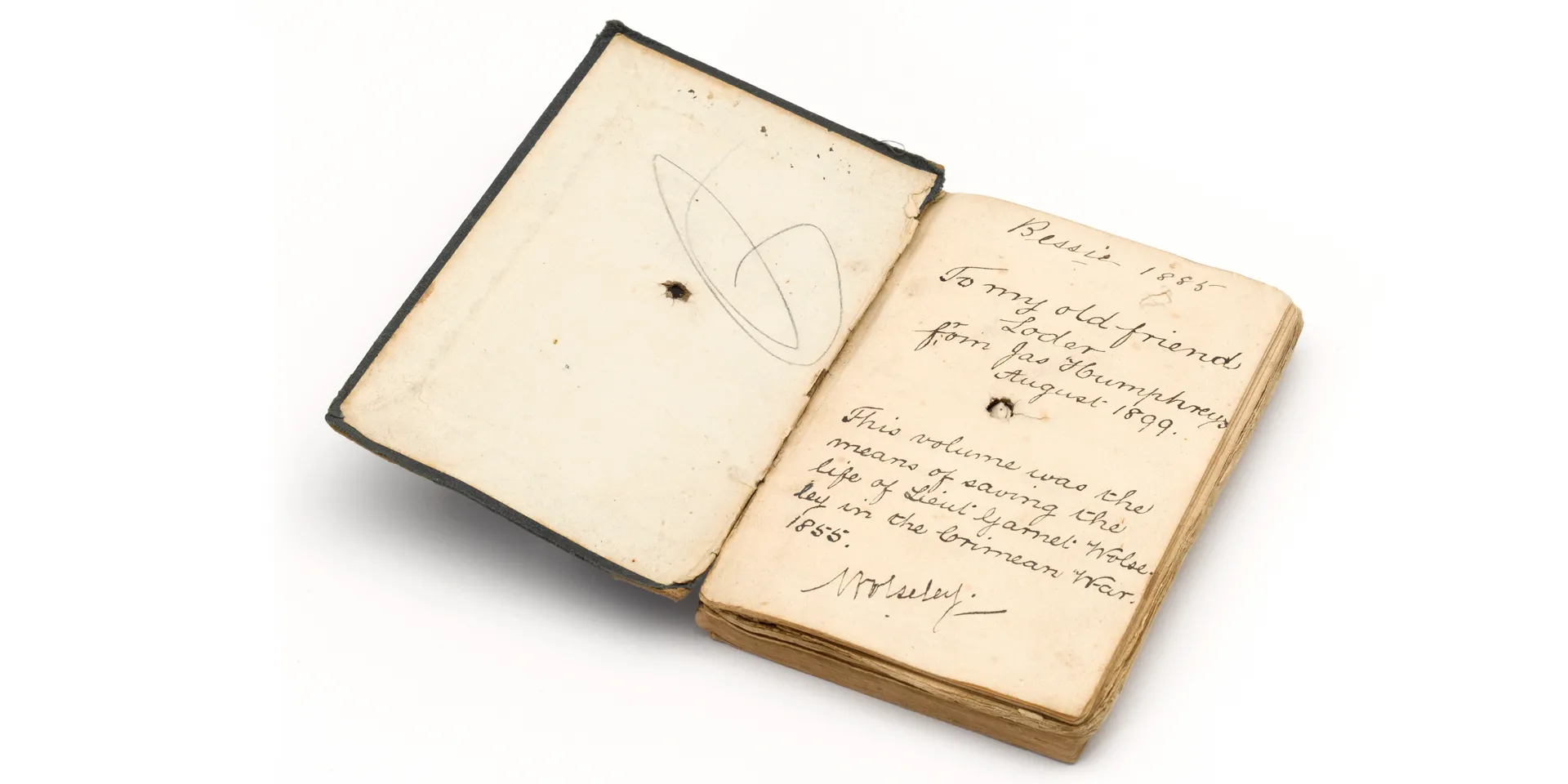
A literary hit
This French-English grammar book has an inscription stating that it saved the life of Lieutenant Garnet Wolseley during the Crimean War (1854-56).
Wolseley was one of the great figures of the Victorian army and served in many colonial campaigns. He was also closely involved in the Army reform, the contentious issue of the day, and later rose to become Commander-in-Chief of the British Army.
Field Marshal Viscount Wolseley, 1910
Wolseley was known for his reckless bravery. He was wounded many times during his long career, including on two occasions during the Crimean conflict. The most serious of these incidents was a shell explosion that killed several of his comrades and left Wolseley with a hole in his head and blind in one eye.
Although we can be certain that this book belonged to Wolseley, his autobiography contains no mention of it saving his life. Perhaps he had been involved in too many close shaves to record them all.
'I don’t know how long I lay unconscious in that horrible heap of mangled humanity, but out of dim hazy recollections comes one little half-dazed fancy of returning reason. I was certain I was alive, but equally sure that I had lost the top of my skull. 'I longed to put up a hand to examine my head, but shrank from doing so because of what seemed to me, in my dazed state, the horrible certainty that if I did so my fingers would inevitably dabble in my exposed and protruding brains!'
Memoir of Lieutenant General Sir Garnet Wolseley - 1878
Front and back of a penny dented by a musket ball during the Battle of Waterloo, 1815
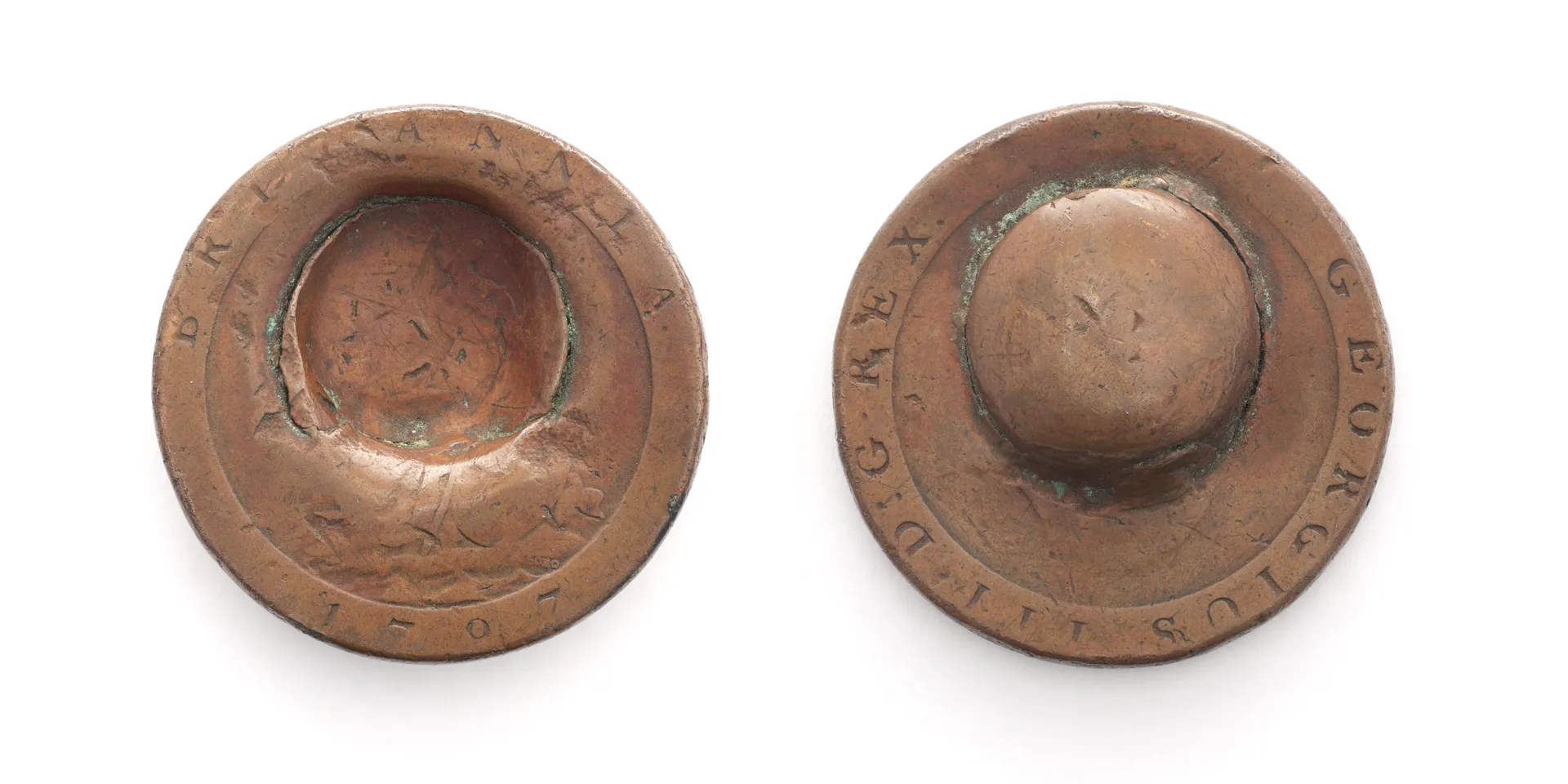
A lucky penny
This penny was found on the battlefield of Waterloo in 1815. It had stopped a musket ball fired during the battle.
The indentation shows that the shot hit the penny at a right angle, bringing the ball to a complete stop. It must have saved its owner’s life. However, this lucky streak may not have lasted long as it is likely to have been retrieved from the pocket of a dead soldier.
See it on display
You can see Private Palmer's Oxo tin and the lucky Waterloo penny on display in our Soldier gallery, alongside other items exploring the physical and emotional experience of soldiering.

